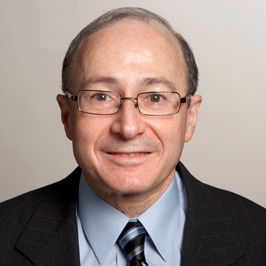Opinion
Video
Recent Breakthroughs in Treatment of Plaque Psoriasis
An expert nurse practitioner comments on recent advances in the treatment of plaque psoriasis, as well as the continuous need for more treatment options.
Lauren Miller, MPAS, PA-C: Let’s dive in and talk about the advancements and the breakthroughs that we have in our treatment toolbox, if you will, for plaque psoriasis. Now, to me, this is the best time to have psoriasis. I started around 15 years ago. I know you’ve been practicing for how long?
Jayme Heim, MSN, FNP-BC: 20 years.
Lauren Miller, MPAS, PA-C: So, 15 years ago, I remember when I started, we only had around 3 biologic options. We had a couple of your standard systemic therapies. Talk to me on how you feel about the recent advancements that we’ve had in the field of plaque psoriasis specifically.
Jayme Heim, MSN, FNP-BC:I completely agree with you. I think that it’s wonderful that we have all of the new tools in our arsenal. That’s what I call it. We have these therapies. A lot of patients today say, “Well, if I do this medication, am I going to be cured?” No, you’re not. You have a chronic disease. So these are therapies. But before we were very limited in the therapies that we had. Now we have therapies not only for psoriasis and arthritis; most of our biologics will treat psoriasis and psoriatic arthritis. We have better education [and] we have better knowledge of it. I think they’re utilized a lot more. But also we have topical medications that are new to the market. We have not had good topical medications introduced for patients with psoriasis for a long time. So I think that our patients need options, and especially when you work with patients with psoriasis and a chronic disease, there are those subsets of patients that no matter what you start treating them with, you treat them with the medication [and] they don’t respond.… [Or they] respond for a period of time and then they stop responding. So we need all of these medications in order to truly effectively treat our patient population.
Lauren Miller, MPAS, PA-C: I totally agree with that. It’s remarkable, the science and the advancements that we’ve had over the 15 years that I’ve been doing this. When I started, being able to get somebody any improvement was considered success. And now we have these options that are able to get patients clear or almost clear. And we have the ability with these advancements to, because of the number of options, tailor a plan that’s truly specific to that patient’s story, which is just incredible and can be life-changing for these patients.
Jayme Heim, MSN, FNP-BC: It can be, absolutely. And the amount of physical and psychological burden that they have with this disease is horrible. The fact that just a basic discomfort and knowing what it’s like to truly have normal skin again, it’s amazing. It’s the psychological aspect of it. Seeing the patients come in and they’re so burdened and once they’re clear, they’re feeling better, and they’re moving around better. They’re socializing in [the office]. They’re almost a whole new person.
Transcript is AI-generated and edited for clarity and readability.





